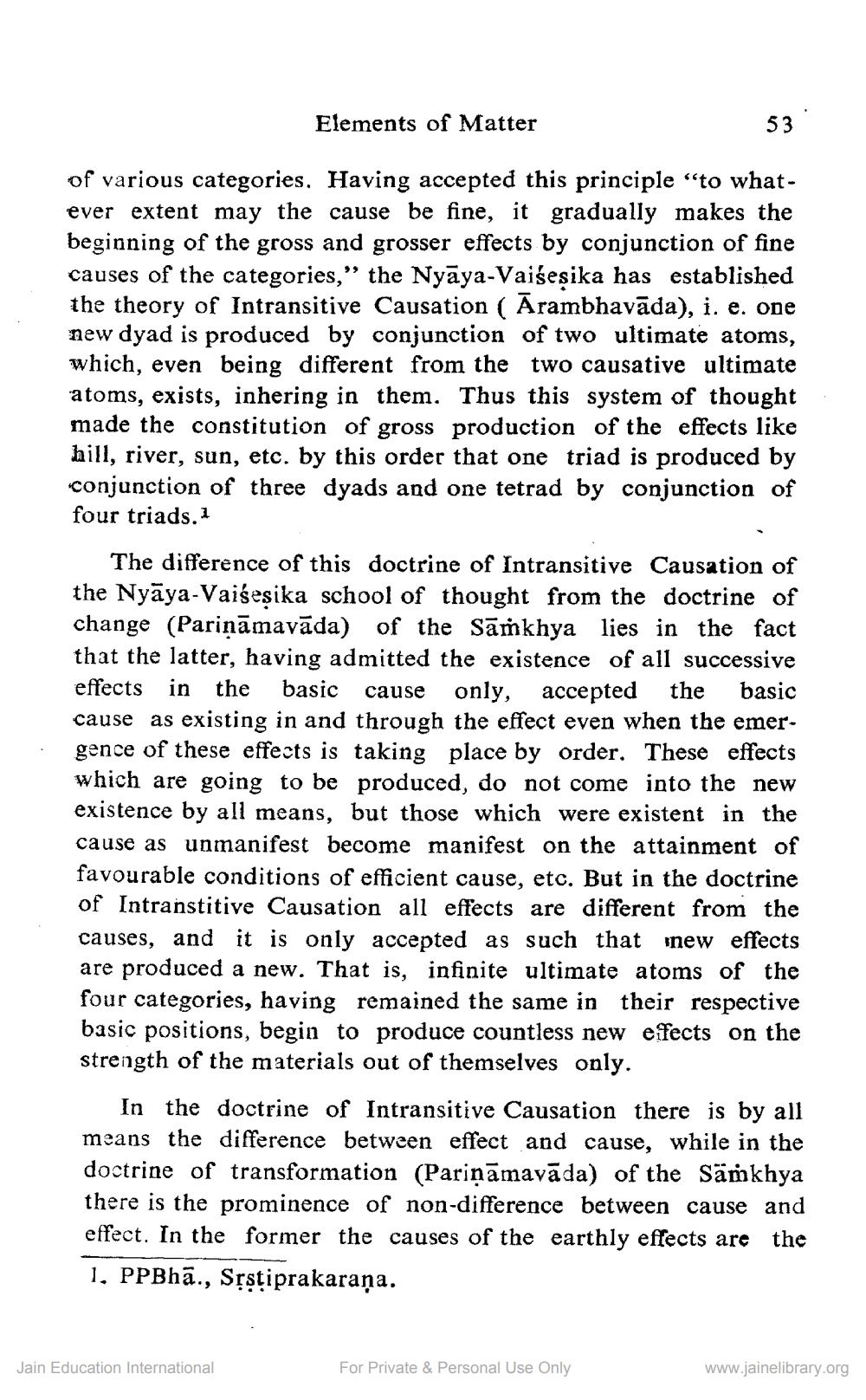________________
Elements of Matter
53
of various categories. Having accepted this principle “to whatever extent may the cause be fine, it gradually makes the beginning of the gross and grosser effects by conjunction of fine causes of the categories," the Nyāya-Vaiśesika has established the theory of Intransitive Causation ( Ārambhavāda), i. e. one new dyad is produced by conjunction of two ultimate atoms, which, even being different from the two causative ultimate atoms, exists, inhering in them. Thus this system of thought made the constitution of gross production of the effects like hill, river, sun, etc. by this order that one triad is produced by conjunction of three dyads and one tetrad by conjunction of four triads. 1
The difference of this doctrine of Intransitive Causation of the Nyāya-Vaiseșika school of thought from the doctrine of change (Parināmavāda) of the Sāṁkhya lies in the fact that the latter, having admitted the existence of all successive effects in the basic cause only, accepted the basic cause as existing in and through the effect even when the emergence of these effects is taking place by order. These effects which are going to be produced, do not come into the new existence by all means, but those which were existent in the cause as unmanifest become manifest on the attainment of favourable conditions of efficient cause, etc. But in the doctrine of Intranstitive Causation all effects are different from the causes, and it is only accepted as such that new effects are produced a new. That is, infinite ultimate atoms of the four categories, having remained the same in their respective basic positions, begin to produce countless new effects on the strength of the materials out of themselves only.
In the doctrine of Intransitive Causation there is by all means the difference between effect and cause, while in the doctrine of transformation (Pariņāmavāda) of the Samkhya there is the prominence of non-difference between cause and effect. In the former the causes of the earthly effects are the 1, PPBhā., Sțstiprakaraņa.
Jain Education International
For Private & Personal Use Only
www.jainelibrary.org




